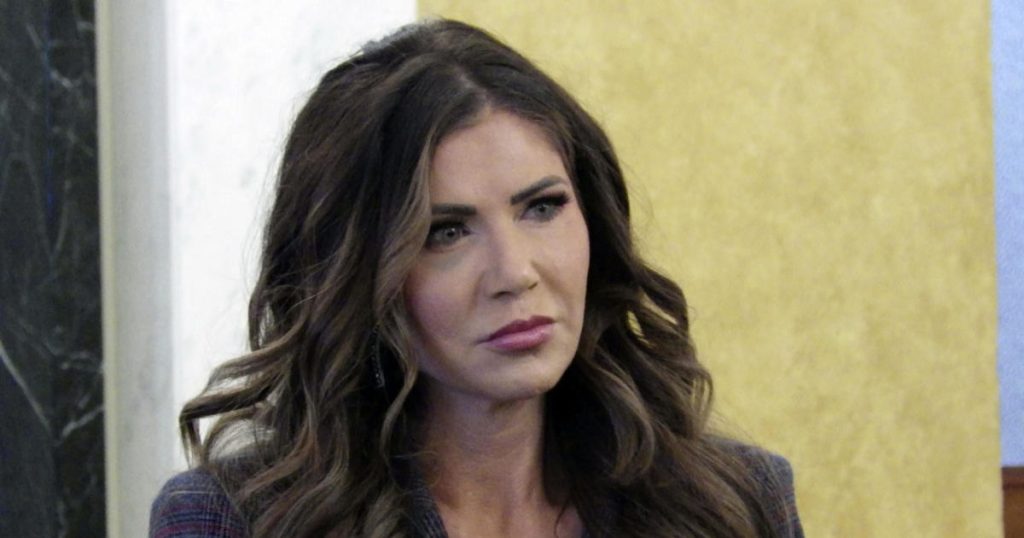South Dakota Gov. Kristi Noem is currently banned from nearly 20% of her state’s land after two more tribes recently banished her. This comes after Noem faced backlash for controversial comments she made earlier this year, as well as for writing about killing a hunting dog in her latest book. The banishments have raised questions about how these controversies may impact her chances of becoming Donald Trump’s running mate.
The Yankton Sioux Tribe and the Sisseton-Wahpeton Ovate tribe recently voted to ban Noem from their land, adding to the list of tribes that have already taken action against her including the Oglala, Rosebud, Cheyenne River, and Standing Rock Sioux tribes. Noem’s public comments about tribal leaders benefiting from drug cartels on reservations have fueled the ongoing tribal dispute, further deepening the divide between the tribes and the rest of the state.
Noem has claimed that many individuals living on reservations still support her, despite the strained relationships with tribal leaders. She suggested that tribal leaders should take action to ban drug cartels from their lands and requested their cooperation in restoring law and order. The history of tensions between the tribes and the government in South Dakota, dating back to the Wounded Knee massacre in 1890, adds a complex layer to the current dispute.
Political observer Cal Jillson speculated that Noem may see political benefits in actively stoking tensions with Native American tribes in South Dakota. Her controversies, including the incident with the hunting dog and questionable passages in her book regarding President Biden’s dog and a non-existent meeting with Kim Jong Un, have drawn criticism and overshadowed her political endeavors. These controversies may impact her standing with Trump as a potential vice-presidential candidate.
With Noem’s term as governor ending after her second term, it remains unclear what her political future holds. She may consider options such as running for U.S. Senator Mike Rounds’ seat or attempting to return to the House of Representatives. However, the ongoing banishments from tribal lands and the controversies surrounding her public statements and actions may affect her ability to move forward politically.















